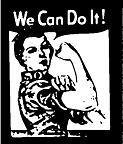home / teaching reading / homeschooling / gifted kids / breastfeeding / crafts |
|
|
"A good education for every child
does not mean the same education for every child. " Please use what works for you and your
child and ignore the rest. Every
child is different. If this
information does not seem to be a good fit for your particular child, then
keep looking and experimenting until you find what works. This Web Page by Pauline
Harding for Art Nurk, askpauline@comcast.net |
A Few Thoughts Before We BeginLearning to read is not a race.Like walking and weaning, kids read at different ages. My kids’ friends read fluently at anywhere from almost-two to ten. Earlier is not always better. Children benefit from a well-rounded life.It’s good to read, but also to play board games, run around outside, play in the mud, go to the park, learn to use the monkey bars, pretend to be someone else, put on a show, sing, paint, build with Lego, ride bikes, and do chores with a parent. Children who read at a very young age may benefit from some encouragement and opportunities in other areas too. If it’s not fun, it’s probably not working.There are a wide variety of activities to encourage reading. If a particular activity just doesn’t capture your child’s attention, then chances are they aren’t ready for it. Back up a bit. Most activities should include things they already know, and then build on that incrementally. Making it hard generally doesn’t help in the long run. Let your child be your guide. There are times when older children may need to do work they don’t particularly enjoy, but this generally isn’t the case for young children and reading. Not too much at once.Do a little bit each day. Five, ten, fifteen minutes adds up in the long run. Keep it fun. Watch the child, not the calendar. Teaching works best when the child is interested and enjoying the work.Teaching Your Child To ReadHere are just some thoughts and tips I’ve found for teaching reading, put into a not-particularly-organized series of web pages. Many of the following pages were originally written as handouts for conference sessions. I find I write quite a bit differently for the web than for handouts! Some of the pages are a bit of a jumble, because I wanted it all to fit on the handout pages! Still, there’s some good stuff here. My favorites are Make Your Own Magnetic Word Wall, Alphabet Fun, Getting Your Homeschool Ready for Writing, and Audio Books. Oh – and Ideas for Mixing Math and Food! · Key Areas for Teaching Reading – An overview of the basic skills you use when you read. It’s not just phonics! · Benefits of Reading Aloud – You know it’s a good thing! · Choosing Books to Read Aloud · Getting to Know Books – How a book works, parts of non-fiction books, literary terms. · Audio Books – How audio books can fit into your learning-to-read program. · Alphabet Fun – Lots of ways to learn the alphabet, and to move from there into reading. · Phonemic Awareness – Taking apart words into their component sounds, and blending sounds into words. Important skills – check this out before you teach phonics. · Phonics Basics – A quick overview of teaching phonics. · Phonics Fun – Phonics games, phonics workbooks, alphabet & vocab games. · Making Games at Home – Ideas and techniques for making your own learning games. · Make Your Own Magnetic Word Wall – Great for practicing beginning reading skills, whatever your approach to teaching. · Choosing Books for Beginning Readers – Things to consider when choosing books for beginning readers to read themselves. · Books for Beginning Readers – Several good book suggestions for practicing early reading skills. · Getting Your Homeschool Ready for Writing – Ideas for integrating writing opportunities into your daily life, setting up a writing center, etc. · If You Encounter Problems Teaching Your Child To Read – Some thoughts about how to proceed. · Resources for Teaching Beginning Readers – Where to find books, buying used books, etc. · Books about Teaching Reading – Books for the teacher to read! Teaching Your Child Math· Pauline's Ideas for Mixing Math and Food – Not about reading at all, this one’s about math! |
